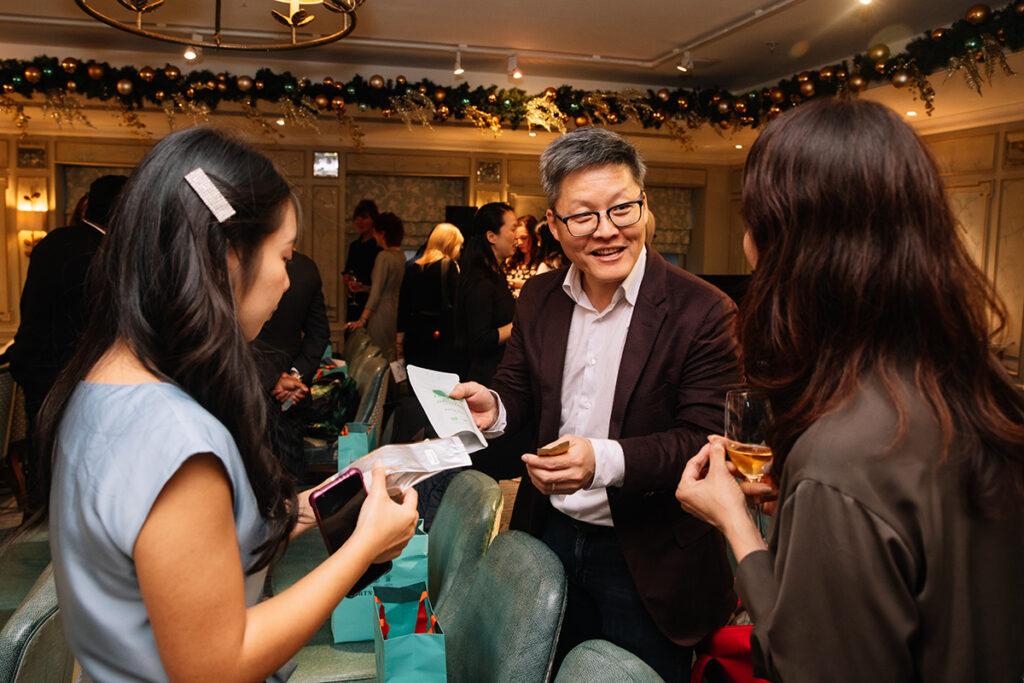Michael D. Ham, co-founder and president of Wild Orchard Regenerative Teas, describes in detail the chemical-free cultivation and multiple washings during the processing of the company’s award-winning teas. Ham explains that regenerative organic practices rehabilitate soil, capture carbon to help reverse climate change and result in a clean, authentic taste as nature intended.
Listen to the Interview
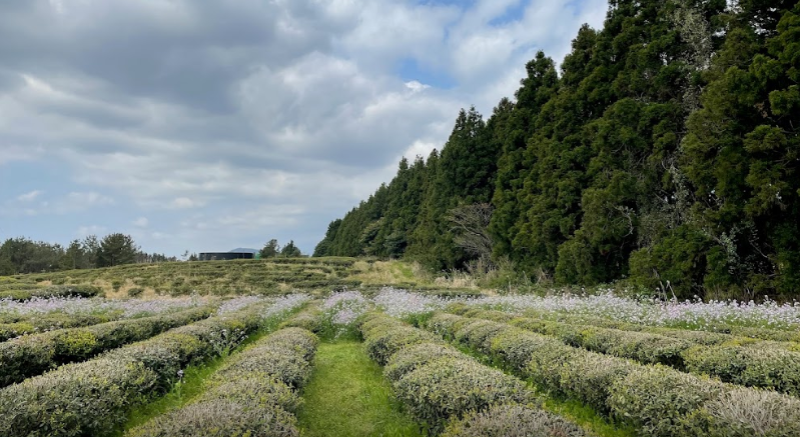
Wild Orchard is the First Regenerative Organic Certified Tea
Jeju Island lies 130 kilometers off the southern coast of South Korea in the Korea Strait. Dormant for the past 5,000 years, Hallasan Mountain is a 1,950-meter volcanic wonderland of craters, cinder cones, and giant lava tubes that dominates the densely foliated island. Popular with tourists for its national park and scenic beaches, the island is also known for its tea.
Wild Orchard sources all its tea from the 1000-acre MJS Tea Farm where the first of two million trees were planted in 1999. The nutrient-dense soil, gentle mists, and abundant wildlife led growers to plant tea seeds on hillsides that were not terraced or cleared of native plants. Irrigation is solely by rainfall. No fertilizers, pesticides, or herbicides are applied, and the soil is never tilled. The farm was certified organic in 2007, and the Wild Orchard brand was established in 2019. In May of this year, the brand became the world’s first Regenerative Organic Certified tea. It was selected by Noma, the World’s Best Restaurant, to be served on their NYC menu and will soon be available for sale at the Rare Tea Counter at Fortnum & Mason tea shop in London.

Michael D. Ham: Our farm was established in 1999. At that time they didn’t know the term regenerative they just had the vision and mindset to create the cleanest, purest teas on a volcanic island that they felt was ideal for growing teas. So, they wanted to allow nature to do its work.
They didn’t want to put any manmade inputs. So, to this day, no herbicides, no pesticides. No fertilizer, everything has been done through nature, all the irrigation is done purely by rainfall. And it’s really a testament to the philosophy that our teas were able to obtain Regenerative Organic Certification earlier this year, the first Camellia sinensis tea to have obtained that aspirational certification.
We are living in a vastly different world than tea has grown in for centuries. Specifically, the demarcation line is the Industrial Revolution. With the advent of machinery, and fossil fuels. Today we’re living in a world where there’s massive pollution in our water table and in the air. And as you mentioned, tea is a bio remediator it absorbs a lot from its surroundings both under the earth in the soil and above ground. And so to be able to create a clean environment, for the teas results in a more authentic pure tea. That’s the philosophy that our farm has to be able to grow tea and living soil, greater nutrient density, more antioxidants, but also flavor and have that move all the way into the cup for the consumer to taste that its purest form. That’s really what regenerative is about in terms of the authenticity of tea.
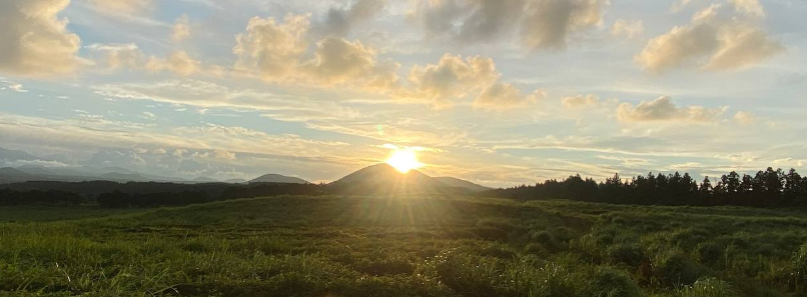
Dan: Tea readily adapts to its environment. If that environment has high amounts of lead in the atmosphere, toxins in the water, and a climate where the plants are alternately parched or flooded, the finished tea will reflect that in the cup. At Wild Orchard, tea coexists with other plants, which is not idyllic as plants must fight off pests and disease and struggle to establish a root system to deliver essential nutrients and minerals. Will you share with listeners some other aspects of regenerative cultivation?
Michael: What makes our teas distinctive from a regenerative perspective is that we set the highest standards throughout the entire process of planting, growing, and producing our teas with the understanding that we are working under the providence of nature, which is key. We first plant by seed which results in a rootstock that goes deeper into the soil and enables the pulling in of more nutrients for a healthier tea leaf. Second, we do not till the land keeping the surface covered naturally to protect the soil ecosystem. This allows the microbiome in the soil to thrive which further elevates the quality of the tea. This is a key element of farming regeneratively. Third, we harvest only the minimum amount necessary, returning any byproducts to the ground to improve soil fertility, without the need for artificial fertilizers. It is all-natural, which again elevates the quality of the tea. Fourth, we do not apply any chemicals to the ground whatsoever. No pesticides, no herbicides, fertilizer, etc. We allow only nature to grow our teas – the sun, the wind, the rain, and living soil. So it’s very simple, but it’s very painstaking in the beginning to get to that stage. Lastly, we hand harvest our teas and we process them with the greatest care to deliver the highest quality teas to our customers.
Dan: What techniques and technology do you rely on to make prize-winning teas?
Michael: So, there are so many things that go into producing prize-winning teas, but if I had to choose one specific technique or method, I think that it would be that we wash our tea leaves four times, and not just with regular tap water. So we keep any equipment that comes into contact with the tea leaves clean. And our farmers are very conscientious about hygiene. So this might be the most basic of basics. But I think this is an extraordinary process that we have, I don’t know anyone else in the world that does this. And, of course, techniques and know-how regarding the various stages of processing tea need to be performed at a high level. But with first principles in mind that tea leaves need to be clean first and foremost, in order for the pure aroma of the tea leaves to reach the cup. And I think this mindset and vision for more farmers to grow teas, as nature has intended, and allow people to drink tea that tastes the way it should inherently, has led to Wild Orchard being honored with 15 awards at the top global tea competitions it’s an ode to the farmers and their vision just to let nature have the biggest impact in growing the teas.
Dan: Can you really taste the difference?
Michael: You definitely can taste it. I believe that judges can taste the authenticity of the tea, the way that tea should be tasted inherently. The best way to explain why that’s the case is because when you farm teas regeneratively, you are growing it in living soil, it’s pulling in more nutrients.
Because the ecosystem is so clean with the biodynamic functioning of animals with the teas with the agroforestry component, everything is working in concert to elevate the quality of the tea. As you said, in monocultures, you’re just focusing on one. So it’s very, very limited in the ability to provide a tea leaf that’s optimal to the way that it should be grown the way it has been grown for thousands of years. So, when you taste conventionally grown tea, you will definitely taste elements of toxins, pesticides, and all these chemicals that should not be in or on the tea leaf. When it’s done regeneratively, you’re getting the most out of that tea leaf without any manmade elements.
Dan: What did the International Tea Academy competition judges say about the winning teas?
Michael: Well, we won Leafies in three categories. The green pan-fired was our first flush green tea. The judges described the aesthetics of the leaf before brew, after brew, the aroma and when they look at the taste, they really liked the authentic green tea taste.
All of these regenerative elements in terms of growing the leaf and making sure that that core element of the Camellia sinensis non oxidized into the green leaf could come out in that taste. I think that’s really what did it the other two categories were our green tea scented tea, and are blended tea and those mix the green tea with fruit notes and things like oranges, lemons, strawberry fruit notes, and that’s a different type of tea. But once again, it adds another element and so the judges were also looking at similar characteristics, how it looked before brew after brew, and then the taste. So I think the regenerative way of farming tastes much more cleanly and purely, and that’s what the judges appreciated.
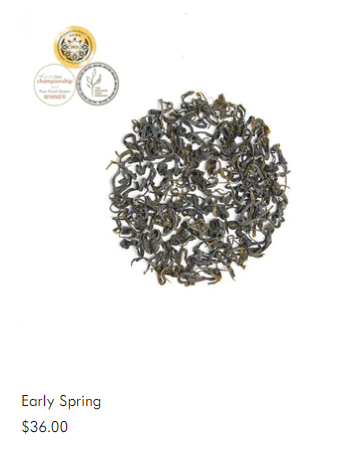
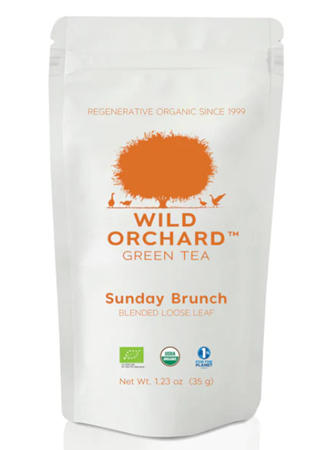
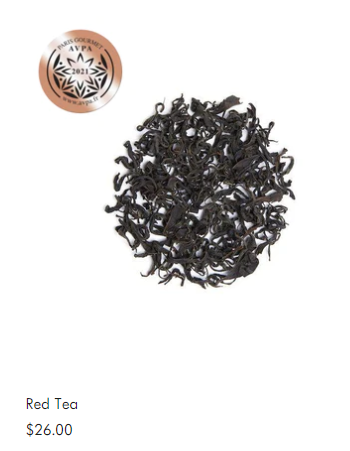
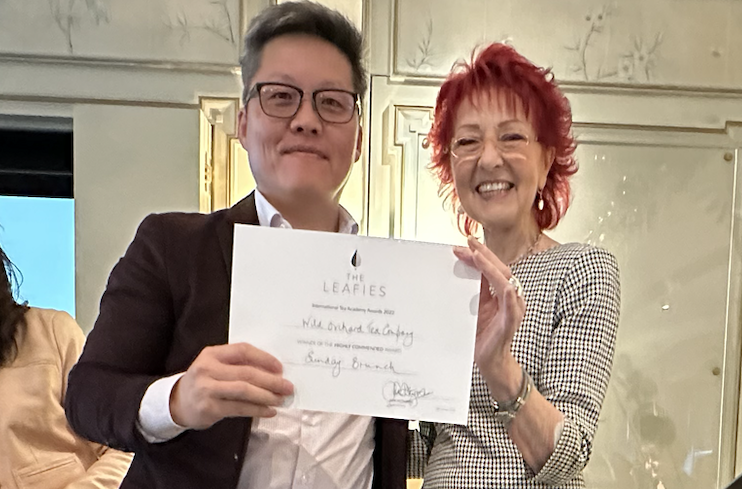
Dan: What are the long-term prospects for regenerative-certified tea?
Michael: Our regenerative certification is by the Regenerative Organic Alliance that was founded by the Rodale Institute. Many well known premium organic brands like Dr. Bronner’s and nature’s path. And so there’s a lot of weight or reputation behind this certification. They pretty much set the highest standards for soil health, animal welfare and farmworker fairness. Those are the three major components and you have to go through a robust auditing process took us two years to obtain and they spent about three, four days on our farm and auditor going through many, many elements through those three core pillars. And only when you achieve a base amount, can you qualify for Regenerative Organic Certification, and they have the bronze silver and gold level. So depending on how much you achieve in that audit and what standards you’ve you’ve achieved, you get these different levels of certification. But now, more and more brands if you go to the supermarket, you’re gonna start to see more regenerative out there. And it’s really the way I put it simply as it’s it goes beyond this simple organic certification because you’re focusing on the soil. You’re there’s also the animal component, a welfare component and the farm worker fairness so it’s really holistic. And it gives the consumer an idea that wow, this product went through extra lengths to provide or produce a product that is not only good for me but for the environment.
Jeju Island
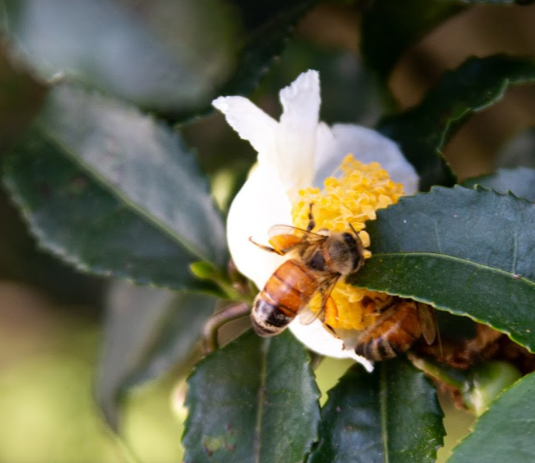
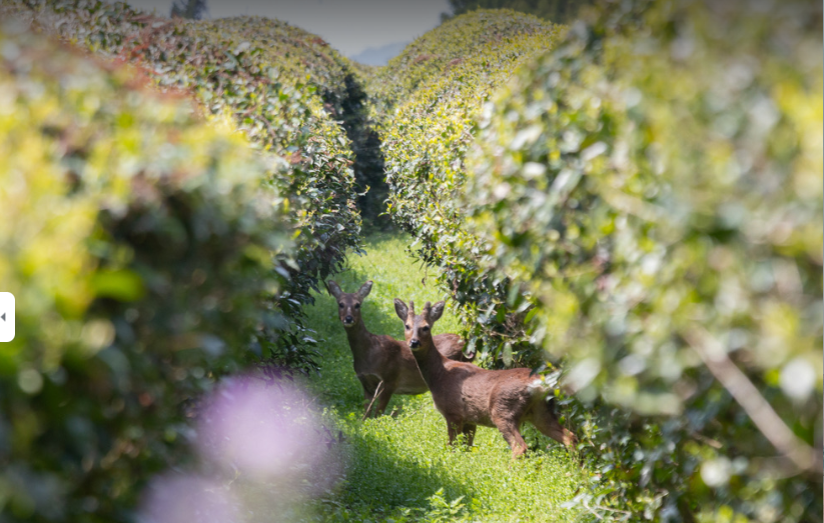
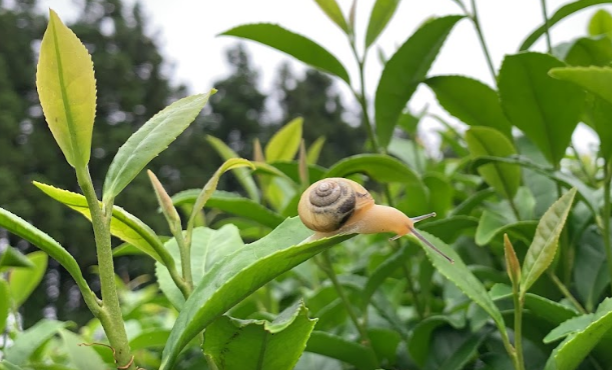

So shifting the topic from price-winning teas to climate-smart teas. Recently, you reported on it, but well-respected tea brands such as Tazo and traditional Medicinals have stated that they are also committing to transitioning their portfolios to regenerative why is this important?
There’s clearly an opportunity to make impact at scale. Studies show that regenerative farms are three to six times more profitable than conventional and the market for Regenerative products all be it in early stages now, continues to gain interest and grow. So if our industry starts to shift from conventional to regenerative, as we’re seeing in other sectors, we can have a tremendous impact on addressing global health and climate crisis. Regenerative practices will allow tea farms to be more resilient and protect smallholder tea farmers amidst the growing climate changes. So what’s the yield issue? Just this summer, you reported China’s extreme heat and its effect on tea farms. But if they had regenerative baked into their operations, they would have been more resilient and they would have had more yield. So in terms of the yield, you have to look at it in the context of today’s climate challenges and regenerative will allow the farmers not only to create a higher quality product or tea, they will be able to future-proof as much as possible, to the extent that they’re farming regeneratively to fight off against all of these floods and heat and all these climate issues that we’re facing on an ever-growing, you know, track each year.
Link to share this post with your colleagues
Signup and receive Tea Biz weekly in your inbox.
